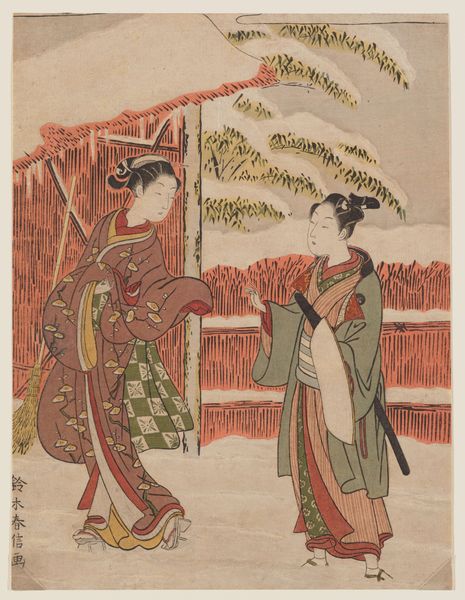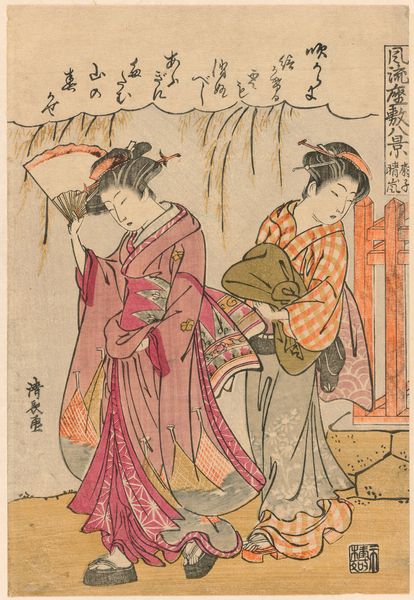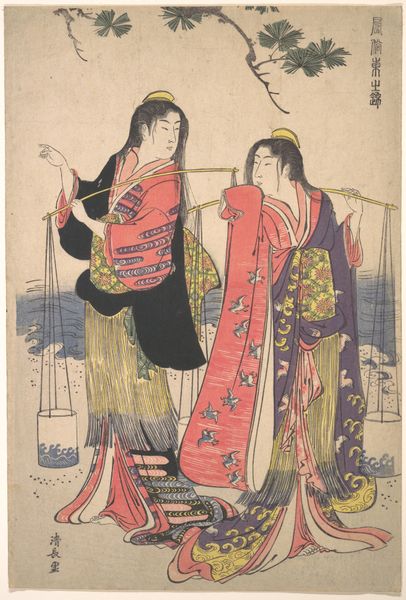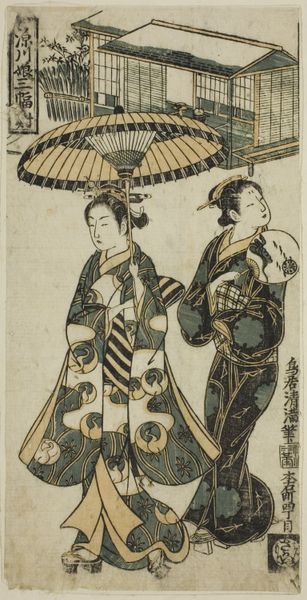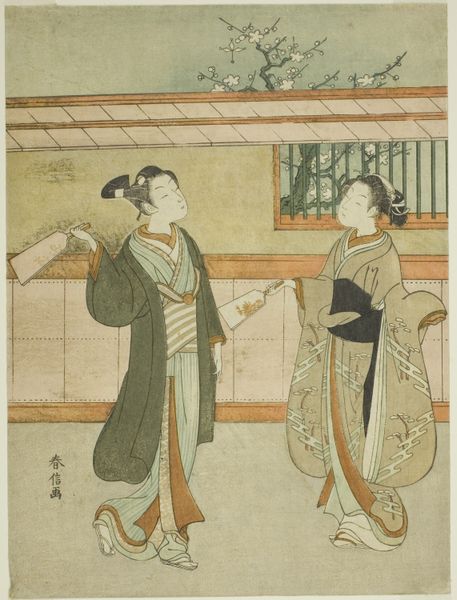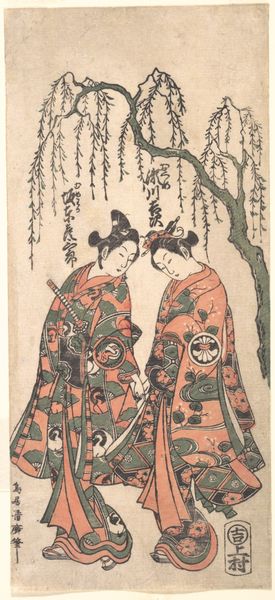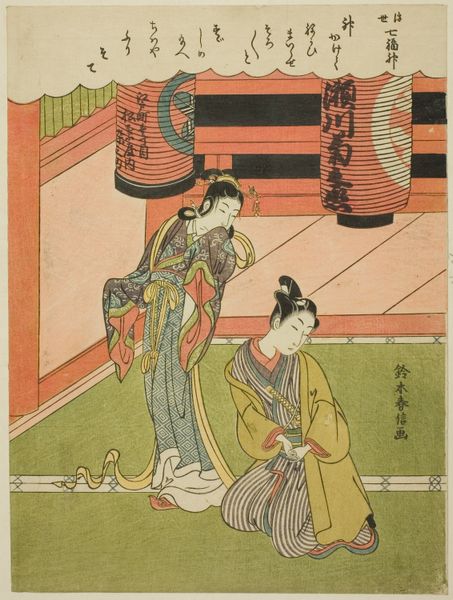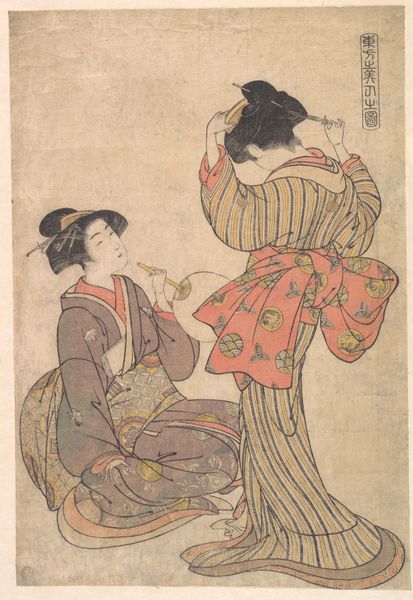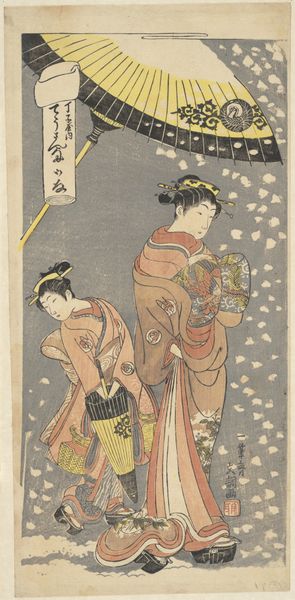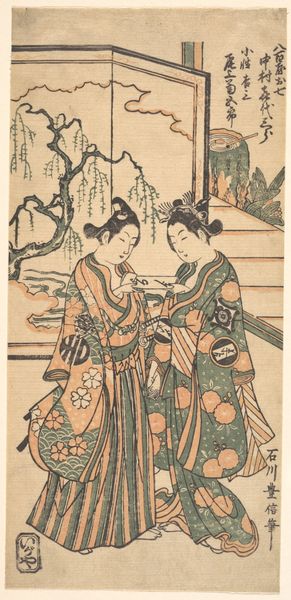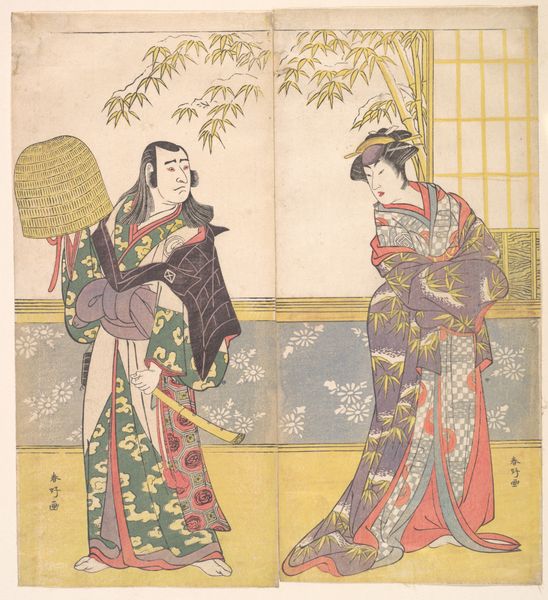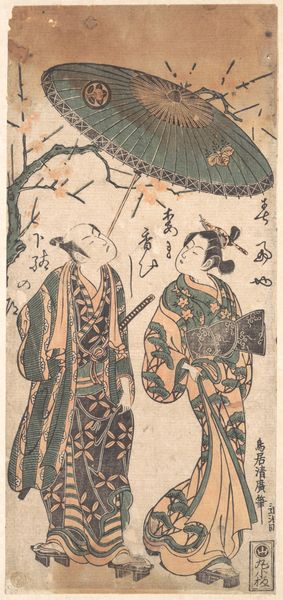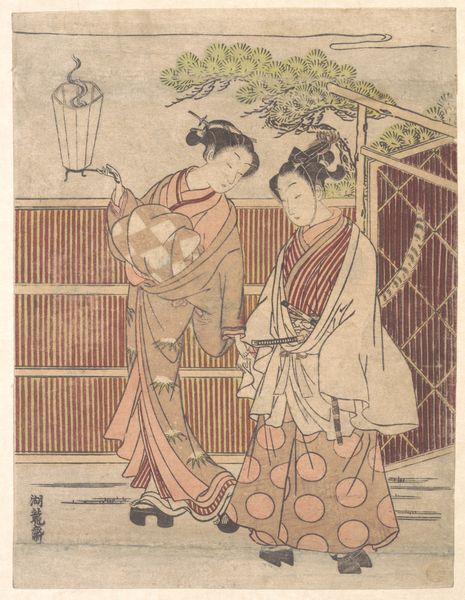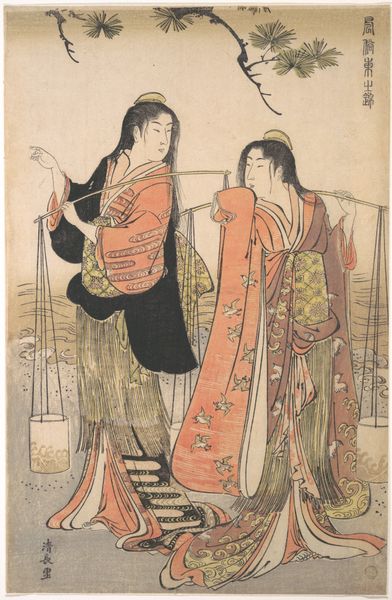
The Actors Nakamura Tomijirō in the Role of Ono no Komachi and Sanogawa Ichimatsu in the Role of Her Servant 1746 - 1766
print, woodblock-print
asian-art
ukiyo-e
figuration
woodblock-print
genre-painting
Dimensions: H. 12 1/8 in. (30.8 cm); W. 5 3/4 in. (14.6 cm)
Copyright: Public Domain
Torii Kiyohiro created this woodblock print of actors Nakamura Tomijirō and Sanogawa Ichimatsu sometime in the mid-18th century. We see two figures caught in the rain; one, presumably Komachi, is holding an object that appears to be a boat. This print belongs to a genre of Japanese art known as Ukiyo-e, or “pictures of the floating world.” These prints often depicted scenes from everyday life, popular entertainment, and, in this case, the Kabuki theatre. Kabuki emerged during the Edo period, as a form of entertainment for the merchant class. Actors, like celebrities, were the subject of much public fascination, and Ukiyo-e prints provided a way for people to connect with their favorite performers. Yet, the relationship between the theatre and the state was complex, and Kabuki was often censored for its perceived threat to social order. By studying the visual codes, cultural references, and historical associations within the print, we can begin to understand the social conditions that shaped its production and reception. What did the theatre mean to people at this time? What was its role within the cultural and political landscape of Japan? These are some of the questions that art historians explore when interpreting works of art.
Comments
No comments
Be the first to comment and join the conversation on the ultimate creative platform.
